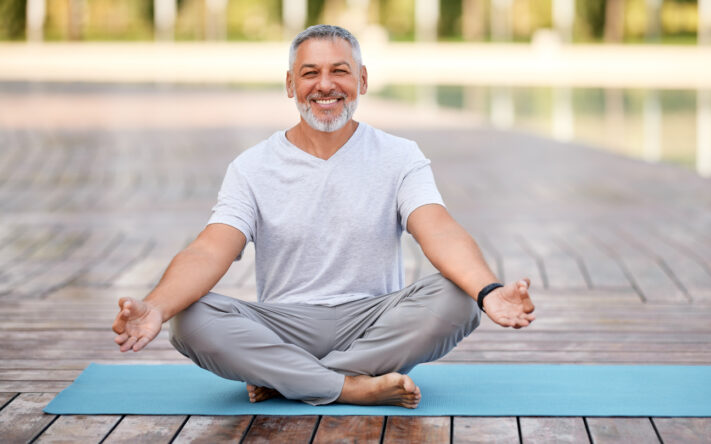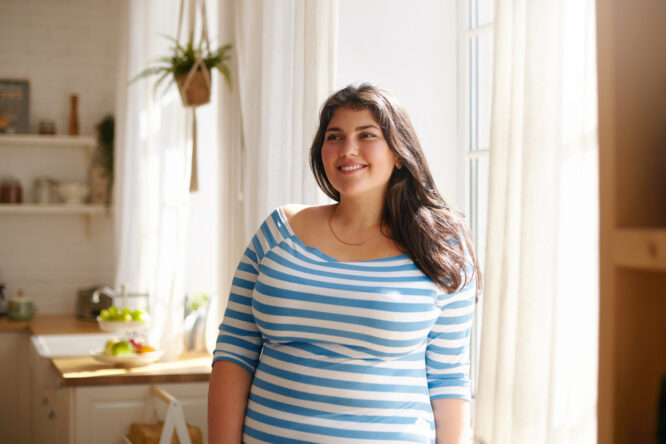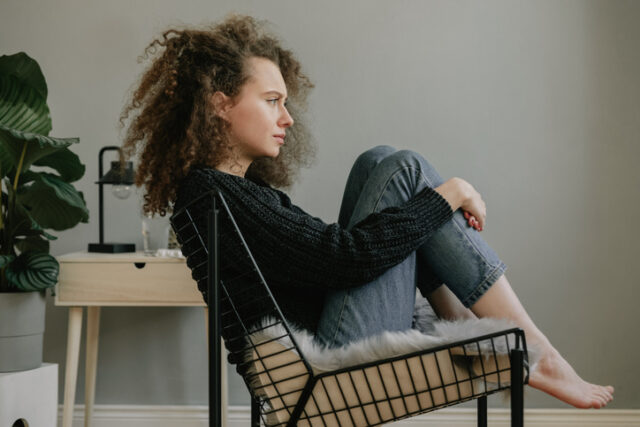Being alone isn’t the same as being lonely, that much is for sure.

In fact, the people who are truly comfortable with their own company tend to move through the world in more laid-back, self-assured ways. They enjoy people’s company, of course, but they don’t need it to feel happy and whole, and that’s incredibly freeing. These subtle behaviours are often the clearest signs that solitude feels like home, not punishment.
1. They make decisions without checking in with 10 other people.

They trust their gut. Whether it’s booking a trip, ending a conversation, or starting a new project, they don’t need to run everything past a panel. It’s not that they don’t value other opinions; they just don’t need constant validation. That relaxed autonomy builds as time goes on. The more they prove to themselves that they can handle their own choices, the less noise they need from the outside. Confidence becomes internal, not borrowed.
2. They genuinely enjoy their own routines.

They’ve created rituals that bring them calm—making tea a certain way, reading before bed, taking long walks with no agenda. These aren’t just fillers until someone shows up. They’re moments of self-connection. Comfortable solitude isn’t about distracting yourself from the silence. It’s about leaning into it—and when your daily rhythm reflects who you are, alone time stops feeling empty. It starts to feel rich.
3. They don’t panic when plans get cancelled.

When someone backs out last-minute, they’re fine—disappointed, maybe, but not derailed. Their sense of wellbeing doesn’t depend on anyone else keeping the day interesting. Instead, they pivot. A quiet evening becomes an opportunity, not a disappointment. That emotional flexibility comes from knowing that their own company is more than enough.
4. They leave events when they’re ready, not when everyone else does.

They don’t hang around out of social obligation or fear of missing out. If their energy’s tapped, they say goodbye without drama or guilt. This boundary isn’t cold—it’s self-aware. When you’re comfortable alone, you stop tolerating environments that drain you just to feel included.
5. They have interests that no one else needs to “get.”

Whether it’s niche documentaries, weird playlists, long journaling sessions, or baking projects no one else will see—they pursue what makes them happy without needing an audience. The validation isn’t external. They’re not doing it to impress, post, or prove anything. That kind of creative solitude is one of the clearest signsthat someonee’s fully at home in their own mind.
6. They process their feelings before reacting.

People who are comfortable alone know how to sit with discomfort. They don’t rush to vent or look for a distraction at the first sign of stress. They pause, reflect, and let the emotion move through them. It’s not always graceful, but they trust the process. Solitude gives them the space to feel what needs feeling without performance or pressure. That emotional regulation makes them more grounded in every area of life.
7. They’re okay eating out or going to events alone.

They don’t view solo plans as sad. They see them as freedom. They’ll go to the cinema alone, eat out at a nice place, or attend something that interests them—even if no one’s joining. This doesn’t make them antisocial. It’s about not waiting for permission to enjoy life. They’d rather experience something fully than miss out just because they’re flying solo.
8. They don’t seek attention just to feel seen.

They might post online, share thoughts, or express themselves, but it’s not rooted in a need for constant validation. They don’t rely on likes or reactions to feel worthy. That ease with visibility (or invisibility) comes from within. They’ve built a sense of identity that doesn’t require applause. They can be loud or quiet, and still feel like themselves either way.
9. They have clear boundaries around their time.

They know how much social energy they have to give. They don’t overcommit out of guilt or stretch themselves thin just to keep everyone else happy. Time alone is a priority, not an afterthought—and because they honour that space, they show up more fully when they’re actually with people.
10. They don’t chase relationships just to fill space.

They’d rather wait for something real than pour energy into something half-hearted. Being single doesn’t scare them, and being alone doesn’t mean they’re lacking. They don’t confuse closeness with compatibility. If a relationship doesn’t feel right, they walk away—because they know being alone is far better than being entangled with the wrong person.
11. They reflect a lot more than they broadcast.
 Source: Unsplash
Source: Unsplash They don’t need to narrate every step of their day. While they might share here and there, they’re often more internally focused than externally expressive. That reflection gives them depth. They’re tuned into their own thoughts, values, and patterns. That inner awareness is what lets them move through life with more quiet clarity.
12. They don’t mind their own silence.

There’s no rush to fill the quiet. Whether they’re at home, driving, or sitting in a café—they’re not frantically reaching for a distraction. This isn’t about being stoic. It’s about being in sync with themselves. That peace in the silence isn’t performative—it’s genuine, and it’s rare.
13. They’re slow to attach emotionally, but steady when they do.

Because they’re not afraid to be alone, they don’t rush into connection just for the sake of having someone around. But when they do connect, it’s solid. They choose carefully and show up fully. Their relationships are rooted in real compatibility, not in fear of loneliness. That’s why their bonds tend to last.
14. They know how to self-soothe.

Rough day? Awkward conversation? Emotional slump? They have tools to comfort themselves without immediately needing a distraction or dumping on other people. That could look like journaling, a walk, a playlist, or simply sitting with the feeling. They’ve built an inner world that can hold discomfort without collapsing.
15. They don’t feel the need to prove their independence.

They’re not shouting “I don’t need anyone!” from the rooftops. They don’t need to constantly remind other people that they’re fine on their own—because they genuinely are. That quiet confidence doesn’t come from rebellion—it comes from ease. They’re not alone to prove a point. They’re alone because they like themselves enough to want their own company.




